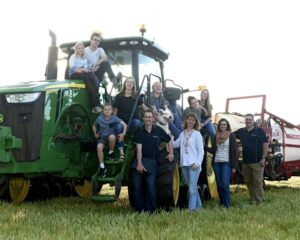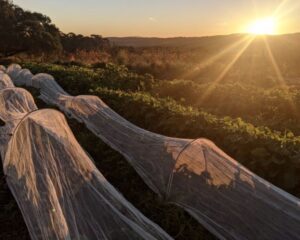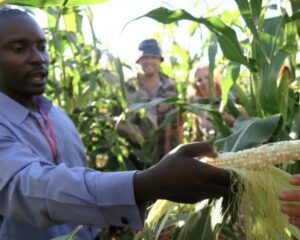Alternative pathways to farm business ownership beyond inheritance
Cultivating Opportunities: Breaking Barriers, Empowering Farmers
Alternative pathways to farm business ownership beyond inheritance
In today’s agricultural landscape, the prospect of becoming a farm business owner often seems insurmountable due to soaring land prices and limited access to capital. However, the government could play a pivotal role in supporting alternative pathways to overcome these barriers and empower aspiring farmers as they enter the industry.
Commissioned by Agriculture Victoria, our latest research report comprehensively delves into models of farm business ownership that extend beyond traditional land and business inheritance. Through our study, we have examined five distinct approaches, carefully identifying the barriers and enablers to their successful implementation. These findings offer insights into government policies that have the potential to pave the way of support for new and young farmers.
Alternative Farming Models
Land Leasing
DISCOVERING NEW OPPORTUNITIES
_________________
Our research reveals that longer-term leases, coupled with legal guidance and matchmaking mechanisms, can significantly ease access to agricultural land for new entrants. We’ve identified strategies to streamline legislation and forge connections, to help new farmers pave the way to securing the land they need to get started.
Share-farming
BRIDGING THE GENERATIONAL DIVIDE
_________________
Share-farming emerges as a model bridging gap between young and ageing farmers. By fostering networking, knowledge exchange, and seamless succession planning, this approach creates opportunities for all involved. Appropriate support and guidance can pave the way for a coexistence among generations of farmers.
Co-operatives
EMBRACING THE POWER OF COLLABORATION
_________________
By fostering a collaborative spirit, co-operatives empower farmers to join forces, sharing to achieve unparalleled success. We have examined strategies to promote and enrich these co-operative endeavours, envisioning targeted programs and government support that nurture a culture of collaboration and yield rewards for participants.
Enabling Alternative Investment
A VISIONARY LANDSCAPE
_________________
Imagine if philanthropic investments could bolster new farmers and research programs could pioneer innovative land use practices. Our research presents arguments for government support to implement and incentivise agricultural trusts and covenants. By doing so, creating an ecosystem to propel the next generation of farmers.
Enterprise Support
EMPOWERING THE NEXT GENERATION
_________________
Increased support and tailored programs are critical factors to ensure farmers feel empowered in effective management. Mentorships and apprenticeships play a role in nurturing the skills and knowledge required for a successful industry. Proactive measures to offer support could pave the way for a new generation of farmers.
Having conducted this extensive research, we are pleased to present several areas with overlapping themes to draw recommendations for government action. These recommendations aim to expedite the entry of new farmers into the agricultural sector.
At the forefront, we emphasise the need for national leadership to address the multifaceted barriers impeding progress. Enhanced access to finance emerges as an imperative, along with a call for appropriate regulation that expands the definition of new and young farmers.
Additionally, we underscore the importance of promoting early exit planning for ageing farmers to ensure a seamless transition for all stakeholders involved and encompassing tax breaks and government-backed loans to facilitate land purchase and investment.
Explore the full report to delve deeper into the insights and recommendations for government within our research report.
Alternative Farming in Practice
Bulla Burra Farms
_________________
Bulla Burra Farms was created by a collaboration between two farming families in South Australia. The two landholding families formed a company with a structure defining the respective farmers’ roles, and the use of their now-shared farmland, assets, and equipment while the ownership of land remains with the original owners.
Harcourt Farming Co-op
_________________
Harcourt Organic Farming Co-op was established after Mt Alexander Fruit Garden owners, Hugh and Katie Finlay, sought non-familial succession alternatives as approaching retirement. The couple wanted to stay on the land and were reluctant to sell the farm after the years they had spent stewarding its soils, and wanted a better solution.
Food Next Door
_________________
Food Next Door matches under-utilised farmland with landless farmers of refugee backgrounds to support small-scale regenerative farming, grow diverse crops and engage people from diverse backgrounds to supply food to local households.The model is funded by a combination of enterprise income and grant funding.
Further resources:
If you are interested in exploring how philanthropic funding could contribute to enabling young farmer pathways, we recommend checking out Sustainable Table’s RIFF report. This report focuses on Farmland, Community & Ecosystem Transitions, as well as Values-Based Supply Chain Infrastructure, shedding light on how these aspects can be supported through philanthropic efforts.
Cover image courtesy of Harcourt Organic Farming Co-op, photographer Oli Holmgren.



